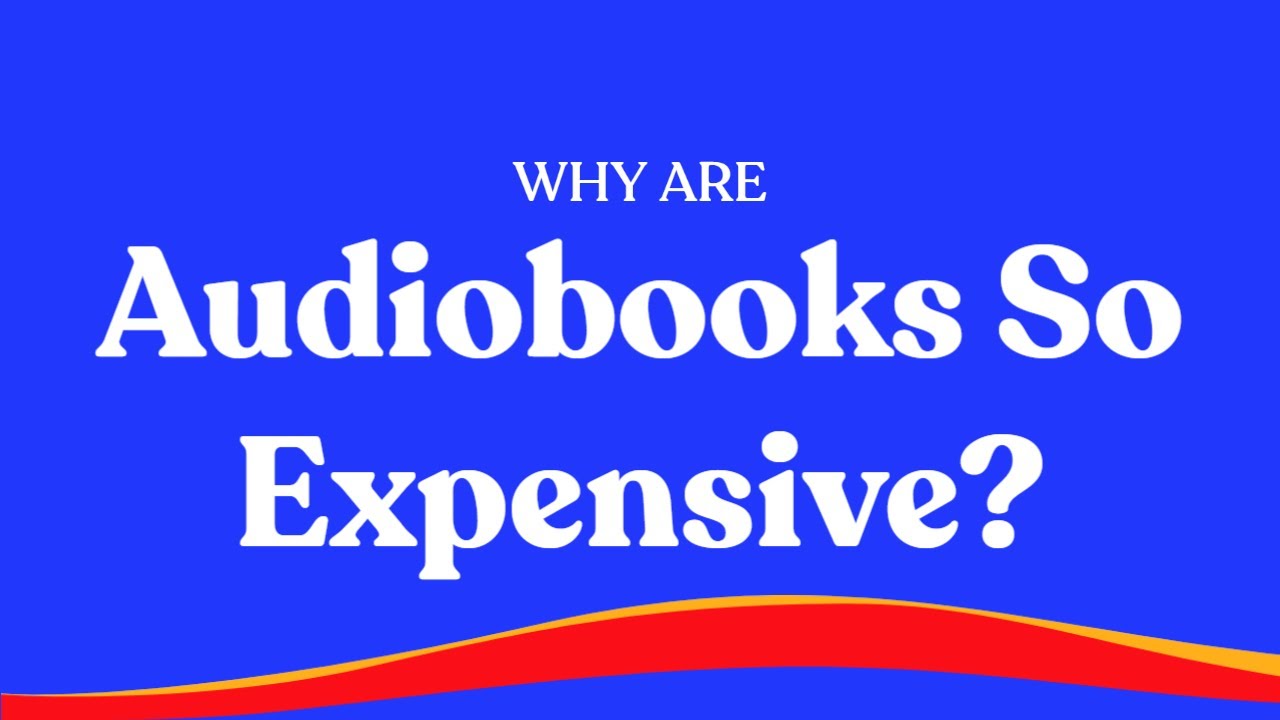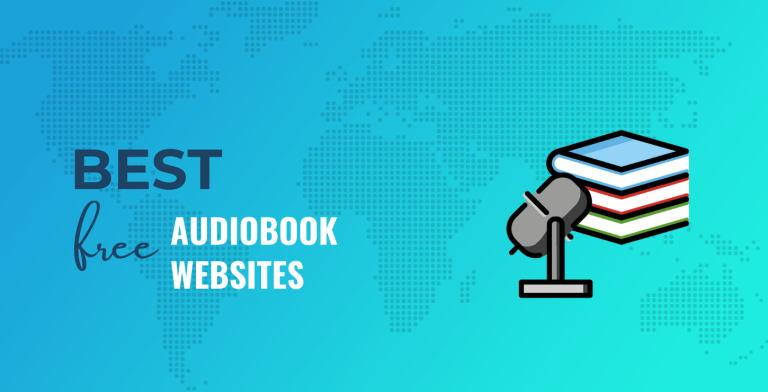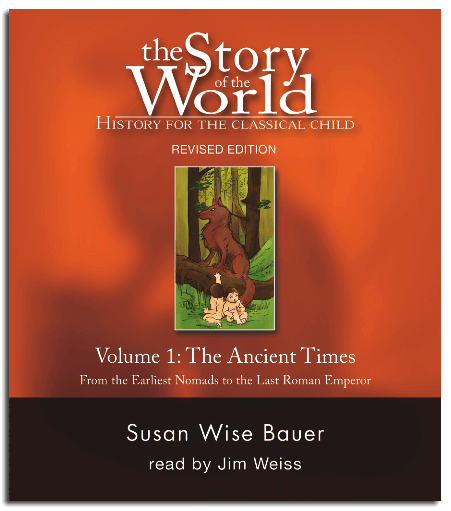Why Audiobooks Are Expensive?
Ever wondered why audiobooks are so darn expensive? I mean, they’re just digital files, right? Well, my friend, there’s more to it than meets the eye. In this article, we’re going to dive into the fascinating world of audiobooks and uncover the reasons behind their hefty price tags. So grab a cup of coffee, put on your favorite headphones, and let’s get ready to unravel this mystery together.
Now, before we get into the nitty-gritty, let’s address the elephant in the room – why the heck are audiobooks so expensive? I mean, you can buy a physical book for a fraction of the price, and yet audiobooks seem to break the bank. Well, my curious reader, there are several factors at play here. First and foremost, producing an audiobook is no walk in the park. It involves hiring professional narrators, sound engineers, and production teams to bring the story to life. And let’s not forget the countless hours spent in the recording studio, meticulously perfecting every line and capturing the essence of the book. All of this hard work and expertise comes with a price tag, my friend. But fear not, for there’s more to the story. Stay tuned as we unravel the mysteries behind audiobook pricing.

Why Audiobooks Are Expensive?
Audiobooks have gained immense popularity in recent years, offering a convenient and immersive way to enjoy literature. However, many people are left wondering why audiobooks tend to come with a hefty price tag compared to their printed counterparts. In this article, we will explore the factors that contribute to the high cost of audiobooks and shed light on the industry dynamics behind their pricing.
The Production Process
Creating an audiobook involves a complex production process that requires significant time and resources. Unlike printed books, audiobooks require professional voice actors or narrators who bring the story to life through their performances. These narrators must possess the necessary skills to engage listeners and effectively convey the emotions and nuances of the written text.
Additionally, the recording and editing process can be labor-intensive. Audiobook production involves meticulous editing to ensure a seamless listening experience, free from background noise or other distractions. Sound engineers and editors work tirelessly to enhance the quality of the audio, adding to the overall cost of production.
Cost of Royalties
Audiobooks are subject to royalties, which are payments made to authors, publishers, and voice actors for the rights to produce and distribute the audio version of a book. These royalties can make up a significant portion of the overall production cost. Authors and publishers expect to be compensated for the use of their intellectual property, and voice actors also deserve fair compensation for their talent and contribution to the audiobook.
Furthermore, the cost of licensing rights to popular books can be substantial. Publishers often acquire the rights to produce an audiobook separately from the printed book, leading to additional expenses that are reflected in the final price of the audiobook.
Market Demand and Limited Competition
The demand for audiobooks has skyrocketed in recent years, leading to a surge in production. However, compared to the vast selection of printed books available, the audiobook market remains relatively limited. The smaller pool of audiobook producers and distributors means less competition, allowing them to set higher prices.
Moreover, the production and distribution of audiobooks require specialized equipment and platforms, which can be costly to maintain. Audiobook retailers and streaming services need to invest in infrastructure and technology to deliver high-quality audio to consumers, further contributing to the overall expenses.
The Value of Audiobooks
While the price of audiobooks may seem steep, it’s important to consider the value they provide. Audiobooks offer a unique and convenient way to consume literature, allowing listeners to enjoy books while engaging in other activities such as commuting, exercising, or doing household chores. The immersive experience of an audiobook, with skilled narrators bringing characters to life, adds a new dimension to storytelling.
Additionally, the production quality of audiobooks has significantly improved over the years, with enhanced sound effects and professional narration. These factors contribute to a higher overall cost but also enhance the listener’s experience and enjoyment.
Conclusion
Understanding why audiobooks are expensive requires considering the intricate production process, the cost of royalties, market dynamics, and the value they provide to consumers. While the price may be a deterrent for some, the benefits and convenience of audiobooks continue to attract a growing audience. So the next time you find yourself debating whether to splurge on an audiobook, remember the effort and resources that go into creating these immersive literary experiences.
Key Takeaways: Why Audiobooks are Expensive
- Audiobooks require professional narrators and production teams to create high-quality recordings.
- The cost of recording, editing, and mastering audiobooks adds to their overall expense.
- Royalties paid to authors, narrators, and publishers also contribute to the higher price of audiobooks.
- The limited market size for audiobooks compared to print books affects pricing.
- Investments in technology and distribution platforms impact the pricing of audiobooks.
Frequently Asked Questions
Here are some common questions about why audiobooks are expensive:
1. Are production costs the main reason why audiobooks are expensive?
Production costs do contribute to the overall price of audiobooks, but they are not the sole reason for their high price. Audiobook production involves hiring professional narrators, sound engineers, and editors, as well as renting studio space and purchasing high-quality recording equipment. These costs can add up, especially for popular titles that require extensive editing and post-production work.
Additionally, the cost of acquiring rights to distribute the audiobook can be significant. Publishers often have to pay royalties to authors and negotiate licensing agreements with copyright holders. All these factors contribute to the pricing of audiobooks.
2. Are there any other factors that affect the cost of audiobooks?
Yes, apart from production costs, there are other factors that influence the price of audiobooks. Distribution and marketing expenses play a significant role in determining the final price. Audiobooks need to be distributed through various platforms, such as online retailers and streaming services, which involves additional costs. Marketing campaigns are also essential to promote the audiobooks and reach a wider audience.
Furthermore, the demand for audiobooks has been steadily increasing, leading to higher prices. As more people turn to audiobooks for their reading needs, publishers can justify charging a premium for their products. The law of supply and demand applies here, where limited supply and high demand result in higher prices.
3. Can I find cheaper alternatives to audiobooks?
Yes, there are alternative options available for those seeking cheaper alternatives to traditional audiobooks. One option is to explore free or low-cost audiobook platforms. Many libraries offer audiobooks for borrowing, either physically or through digital lending services. Additionally, there are websites and apps that provide access to a wide range of free or discounted audiobooks.
Another option is to consider audiobook subscription services. These services typically offer a monthly fee for unlimited access to a library of audiobooks. While the subscription cost may seem high initially, it can be more cost-effective in the long run, especially for avid audiobook listeners.
4. Are there any benefits to investing in more expensive audiobooks?
Investing in more expensive audiobooks can have its benefits. High-priced audiobooks often come with professional narration, enhanced sound quality, and immersive production value. These elements can greatly enhance the listening experience and make the audiobook more enjoyable.
In addition, purchasing audiobooks from reputable publishers ensures that you are supporting the authors and the industry as a whole. By paying a higher price, you are contributing to the continued production of quality audiobooks and supporting the livelihoods of authors, narrators, and other professionals involved in the creation process.
5. Are there any ways to save money on audiobook purchases?
Absolutely! There are several ways to save money on audiobook purchases. One option is to sign up for email newsletters or follow audiobook retailers on social media. They often offer exclusive discounts, promotions, and bundle deals that can help you save money on your favorite audiobooks.
Another way to save is by utilizing audiobook credit systems. Some platforms allow you to purchase credits at a discounted rate, which can then be redeemed for audiobooks. This method can be more cost-effective, especially if you frequently listen to audiobooks.
Why Are Audiobooks So Expensive?
Final Summary: Why Audiobooks Come with a Price Tag
In a world that is increasingly driven by convenience and technology, it’s no surprise that audiobooks have become a popular choice for book lovers. However, one question that often arises is why audiobooks tend to be more expensive than their print or e-book counterparts. The answer lies in the intricacies of production, narration, and licensing, which all contribute to the higher cost of these audio delights.
First and foremost, the production process of an audiobook is no simple feat. From recording in professional studios to editing and mastering the audio, a significant amount of time, effort, and resources go into creating a high-quality audiobook. This meticulous attention to detail ensures that listeners have a seamless and immersive experience, but it also adds to the overall cost.
Another factor that contributes to the cost of audiobooks is the expertise of the narrators. These talented individuals bring the story to life, capturing the essence of each character and providing an engaging performance. Their skill and dedication come at a price, as they invest their time and talent into delivering a captivating narration that enhances the listener’s experience.
Lastly, licensing is a crucial aspect of audiobook production. Publishers must obtain the rights to produce an audiobook version of a book, which often involves negotiations and financial agreements. These licensing costs, combined with the production and narration expenses, ultimately translate into a higher price for audiobooks.
In conclusion, while the higher price of audiobooks may seem daunting, it’s important to understand the reasons behind it. The intricate production process, the expertise of narrators, and the licensing requirements all contribute to the overall cost. However, the investment is well worth it for those who enjoy the convenience and immersive experience that audiobooks offer. So, the next time you indulge in an audiobook, remember the effort and craftsmanship that went into creating it. Happy listening!






